Retrospective of Civilization II: Test of Time
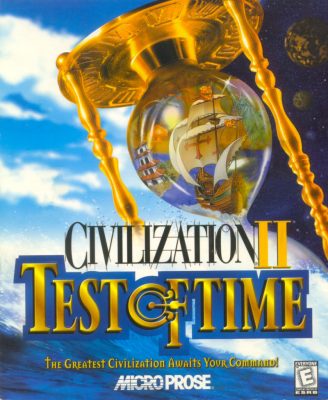 “There seems too wide agreement that the best version of Civ ever, was Civ II – Test of Time.”
“There seems too wide agreement that the best version of Civ ever, was Civ II – Test of Time.”
Or
“They screwed around with Civilization and made it worse.”
By Patrick S. Baker
By 1997, famed game designer Sid Meier had left MicroProse and founded Firaxis with other former MicroProse employees. At about that same time, MicroProse was acquired by Spectrum Holobyte, and then the merged company was purchased by gaming giant, Hasbro Interactive.
In February 1999, Meier’s new company released Sid Meier’s Alpha Centuri. This game did not carry the Civilization name yet was no doubt a sequel to Civilization II (Civ II). Also, in April 1999, a rival game company, Activision, released the game, Civilization: Call to Power. This release sparked a legal dispute between MicroProse/Hasbro and Activision over the use of the name Civilization for computer games. Part of the settlement was that Activision could continue to make Call to Power games, but not use the Civilization title.
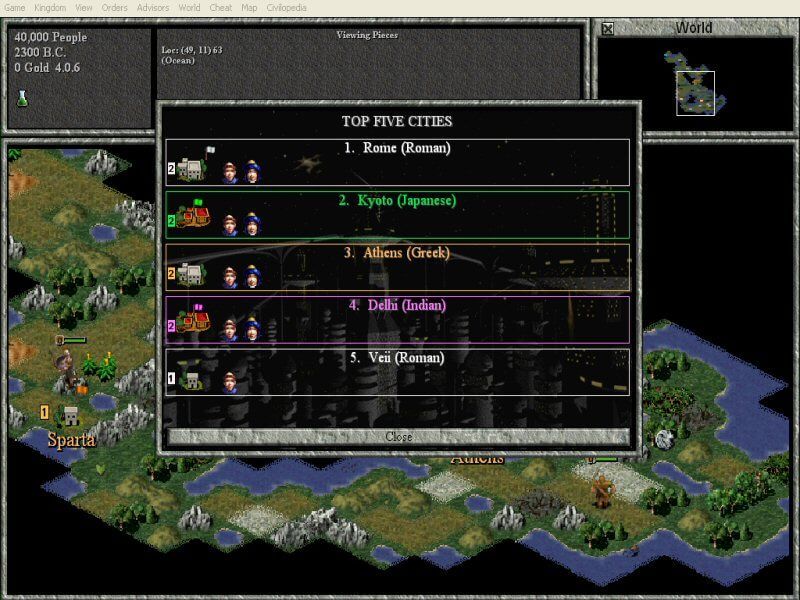 To re-enter the market competition for Civilization-type games, Hasbro and MicroProse developed and released Civilization II: Test of Time (Test of Time). Note that the full title did not include Sid Meier’s name. Less than a totally new game, more than a simple add-on, Test of Time was generally called a remake of the original Civ II game.
To re-enter the market competition for Civilization-type games, Hasbro and MicroProse developed and released Civilization II: Test of Time (Test of Time). Note that the full title did not include Sid Meier’s name. Less than a totally new game, more than a simple add-on, Test of Time was generally called a remake of the original Civ II game.
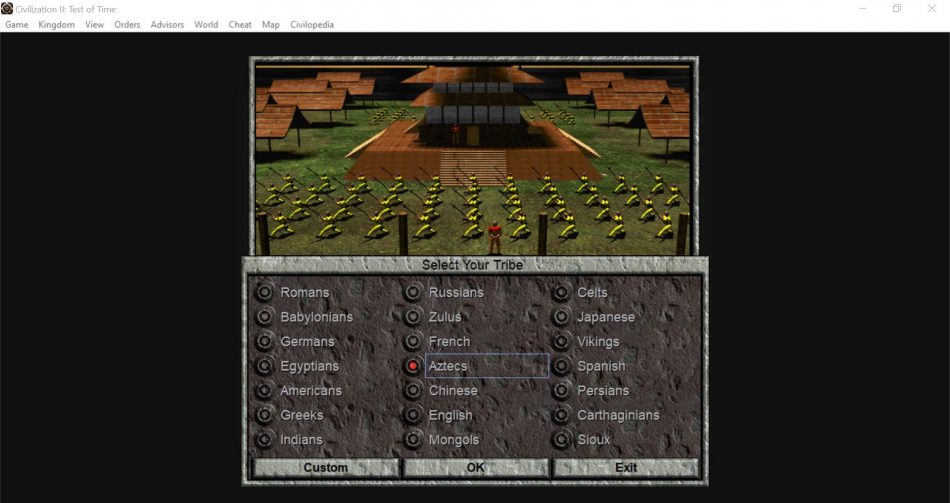
Released in August 1999, Test of Time featured both the original and extended campaign of Civ II. In the extended campaign, when the player constructed the starship to take a colony to Alpha Centauri the game did not end, rather it revealed another tech tree and let the player battle the Alpha Centaurians for control of that planet.
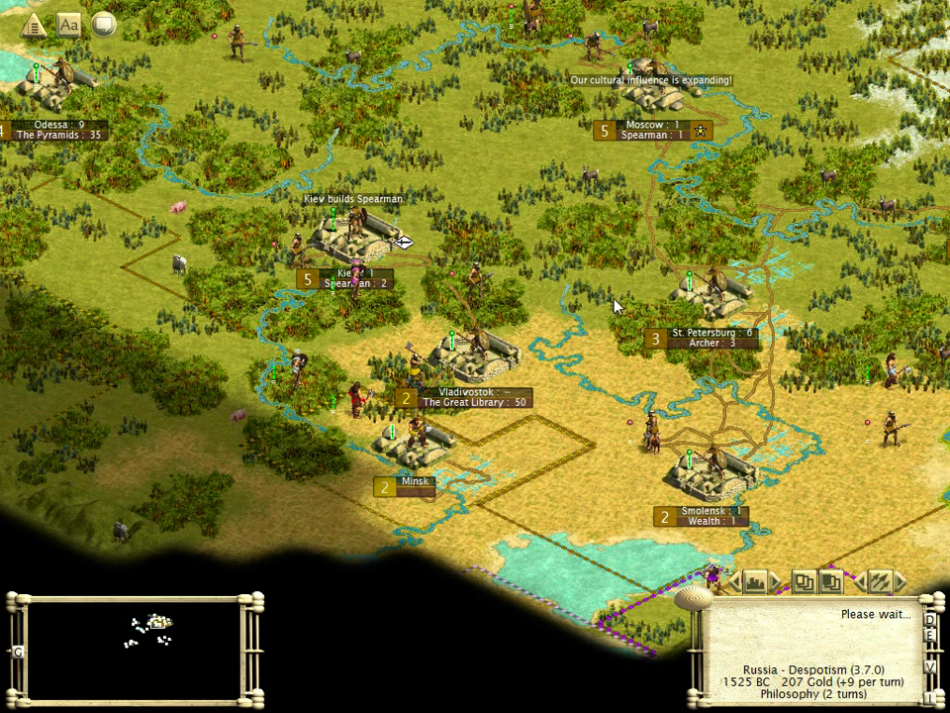
Also, Test of Time was a “science-fiction campaign” which focused on a fictional planetary system set around the real star, Gliese 411, a red dwarf star about eight light years from Sol. Humans and aliens identified only as “non-humans” both crash on the earth-like planet, Funestis. Both species learn to communicate with each other. They also expand throughout the star system to the rocky planet, Naumachia, the gas giant, Nona, and various artificial satellites.
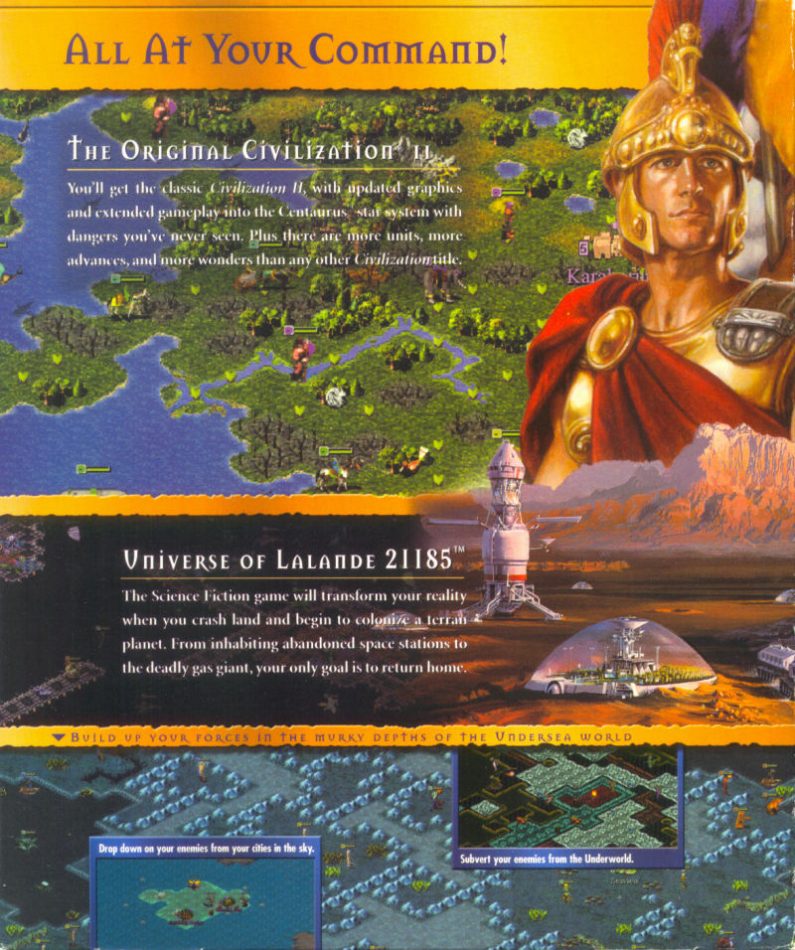 There were also two mythological, or fantasy, campaigns. One was based on Norse mythology and featured fantasy races such as Elves, Merfolks, and Goblins. There were two human civilizations as well, one with a culture like that of Europe in the Middle Ages and the other like the nomadic steppe peoples. In this campaign, various races competed throughout four realms: the Surface World, the Underground World, the Cloud World, and the Undersea World.
There were also two mythological, or fantasy, campaigns. One was based on Norse mythology and featured fantasy races such as Elves, Merfolks, and Goblins. There were two human civilizations as well, one with a culture like that of Europe in the Middle Ages and the other like the nomadic steppe peoples. In this campaign, various races competed throughout four realms: the Surface World, the Underground World, the Cloud World, and the Undersea World.
The other fantasy scenario was the Midgard Campaign which was based on not just Norse myth, but also Celtic and Slavic myths as well. This scenario was focused on the looming escape of the wicked mage, Volsang, who had been imprisoned centuries before the game’s start. The seven civilizations have forgotten about Volsang until they are threatened by his followers.
Just as with the original Civ II, Test of Time allowed players to do their own modifications, called modding, for the game. Just a quick perusal of the various message boards of these mods shows variants from one based on the life of Charlemagne to one with dinosaurs, to yet others based on Star Trek, and so on.
Despite how enamored some players were by Test of Time, most critics and most Civilization fans were less than impressed by it. GameRankings’ aggregate score for Test of Time is a mere 66%. By comparison, the original Civ II has a 94 percent aggregate score on Metacritic.
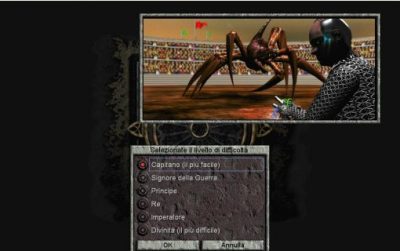
The most favorable review for Test of Time was a 4 out of 5 stars and came from Computer Gaming World, this review generally praised the Artificial Intelligence and the new “variety” in the gameplay. In 2012, TechShout named Test of Time the third best of the whole Civilization franchise, over the original Civ II and Alpha Centuri.
Meanwhile, the harsh reviews focused on how little new was really added to the gameplay and the poor graphics. For example, one review said that Test of Time “add(ed) almost nothing to one of the finest games of all time” and it was “masquerading as a new game and with a new-game price tag…”. PC Accelerator called the game an “almost pointless exercise” and the graphics “woeful”.
Summing up Civilization II: Test of Time would appear to be one of those games that most Civilization fans, for whatever reasons, either love or hate, with only a few taking a middle ground.
Sources:
About.com. (11 April 2016) “Civilization Series (Civilization II: Test of Time)”
Civilization Fanatics Center. Civ II Test of Time
Computer Gaming World (December 1999). “Civilization II: Test of Time”
GameRankings: “Civilization II: Test of Time for PC”
GameSpot.com (1 May 2000) Civilization II: Test of Time Review
PC Accelerator (October 1999). “Civilization II: Test of Time”
PCGamesN (11 August 2016). “The most important PC games of all time: Civilization”.
PC Gamer UK (October 1999). “Civilization II: Test of Time”
Techshout (11 July 2012) 6 Best Civilization Games
Metacritic: Sid Meier’s Civilization II
